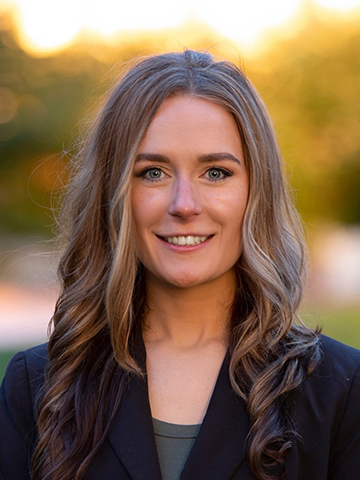Mission Control: A St. Louis Startup With Chaifetz School Roots
We spoke with Natalie Bell (CSB '20) about her position with Mission Control, a St. Louis esports startup founded by three current and former students of the Chaifetz School. The startup, which employs six individuals who have studied business at the Chaifetz School, has seen great success in 2020.
For many new startups, 2020 has been a difficult year. The rise of the COVID-19 pandemic introduced unique challenges to entrepreneurs, making the already laborious prospect of founding a company—securing investors, attracting quality employees, growing a customer base—even more daunting.
But Mission Control is no ordinary startup.
Founded in 2018 by current and former Chaifetz School of Business students Austin Miles Smith, Byron Abrigg and Brandon Smith, Mission Control provides a management platform for individuals and organizations looking to get into recreational esports, or competitive, organized video gaming.
Mission Control describes recreational esports as “just like your favorite rec-league sports, but for video games.” The company supports games played on all major gaming consoles, and currently offers leagues in 10 different titles, including Call of Duty, Mario Kart and Super Smash Bros.
Esports has long been a realm dominated by professional gamers, but Mission Control seeks to bring the organized gaming experience to a more recreational audience. According to the organization, Mission Control’s platform “utilizes the nature of gaming to create digitally organized social experiences that drive connection through shared passions and playful competition.” In other words, the company’s primary mission is to share the joy of gaming.
“The digital transformation of community connection, especially when it comes to recreation, is already happening," says Natalie Bell, current Chaifetz School student and Mission Control customer success manager. The social distancing brought on by the pandemic has expedited what was already in motion.

The world has needed some extra connection recently, and in this regard Mission Control’s timing has been fortuitous. While few startups can claim to have benefited from the COVID-19 pandemic, Mission Control’s platform is designed for the kind of remote interaction the past six months have demanded. Through video gaming, players can have fun, be mentally engaged and spend time with their friends or family, all without leaving the house. Starved as we are for communication and diversion, there’s never been a better time to get into gaming.
The pandemic certainly doesn’t deserve all the credit for Mission Control’s success, however. According to a 2020 esports ecosystem report, the esports market is on track to surpass $1.5 billion in revenue by 2023. The industry’s positive projections might have something to do with the $1.75 million in seed funding that Mission Control had raised as of July 2020.
"Providing digital community and programming has never been more important, and we've been so fortunate to have a platform that can help organizations do just that," says Byron Abrigg, co-founder and chief customer officer at Mission Control. "We're also incredibly proud of the new team members who have joined us this year to help all of our customers and gamers connect and compete."
Including the three founders, six Chaifetz School alumni and current students are on staff at Mission Control. Bell, who will graduate from Saint Louis University this December, has only positive things to say about working at the startup.
“As a small team, you have more of a stake, more of a say in things,” says Bell of the close-knit group. “It just feels like a family.”
